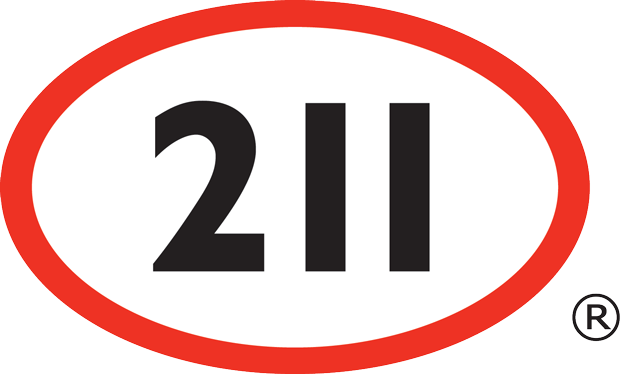Michelle Ste-Marie Appointed Interim Director of 211


Find Community and Social Resources
Find services by topic
Endured in silence and relegated behind closed doors for far too long, the fight against conjugal violence is now one of society's great challenges. Taking on many forms, conjugal violence can, at times, be difficult to recognize, until the trap closes in on the victim. But every day, there are organizations that work tirelessly to fight against this violence, whether it is by helping the victims or by preventing the violence from being committed. More than ever, their role is essential.
While physical violence is the most publicized, conjugal violence can take on many forms. Here are just but a few examples:
These various forms of violence can be carried out differently and at times difficult to recognize by the victim or their loved ones. Mrs. Claudine Thibaudeau, Head of Clinical Support at SOS violence conjugale explains: «Often the violent partner will tell the victim that it is not violence, that they are exaggerating, that they are too sensitive, too demanding. The more the aggressor is good at covering up the violence in everyday life, the more it becomes complicated. » Thus, difficulty recognizing a situation of conjugal violence can become a serious hurdle in seeking help. That is why SOS violence conjugale has put up a self-assessment questionnaire (already used by more than 104 000 people) on their website for anyone who has doubts about their relationship and their partner's behaviour.
« They don't have to be certain that it is conjugal violence to call. They have the right to question it. »
According to Mrs. Thibaudeau, this questionnaire has a real impact. «After filling it out, women who never dared call us will understand that they have every right to do so. The questionnaire validates their claim. » She specifies: « They don't have to be certain that it is conjugal violence to call. They have the right to question it, to not have the same view of the situation as their partner. »
SOS violence conjugale: a gateway to resources that can help
|
Among the available resources are shelters for women victims of conjugal violence. These shelters are more than just a place to stay, providing a wide range of services. As indicated on the website of the Regroupement des maisons pour femmes victimes de violence conjugale, these establishments offer:
Mrs. Fanny Guérin, Head of Communications and Press Relations at the Regroupement des maisons pour femmes victimes de violence conjugale adds: «Women are not just housed with a bed and a room. These shelters are living environments. They interact with other women, we organize discussion evenings, activities for them to share their experiences […] there are playrooms for the children. » Furthermore, it is important to understand that women living in these shelters remain completely free to come and go: « The women can continue working, go out and come back, while respecting certain rules of community life, of course, but they are very free. »
In these shelters, everything is done to guarantee the occupants' safety. «The physical addresses of these houses are confidential. » explains Mrs. Guérin.
« Counselors give out the addresses at the last minute as to ensure that the partners do not get a hold of them. We have surveillance systems and protocols. For example, the counselors will make sure to deactivate the geo localization features of cell phones upon the women's arrival. We are also developing strategies, so they are not housed in their own neighborhoods. »
The length of stay at a shelter depends on each woman's situation but it is 30 days on average. If the situation is more complex, for example if the violence persists post-separation, women are directed to second stage housing. «It consists of appartements in which the women are completely autonomous and can stay up to two years. »
| Did you know? The Regroupement des maisons pour femmes victimes de violence conjugale has access to interpreters in more than 40 languages as well as to specialized equipment for deaf women. |
To find a women's shelter, click below or go to: Regroupement des maisons pour femmes victimes de violence conjugale.
Asking for help is not necessarily an easy task. Many women can, in fact, be afraid that their life will be turned upside-down after a call for help. Yet: «Calling a shelter is not at all demanding. » explains Mme Guérin. «We will never force a woman to leave their partner or go to a shelter. Calling does not mean deciding. The counselors will first lay out the options and then help them decide what is best. They will never decide for them. » For example, counselors can help women prepare, step-by-step, everything that needs to get done before leaving their partner, while ensuring their safety. «Anybody that has doubts about being in a situation of conjugal violence can call a shelter. No matter the type of violence. »
Help with legal proceduresIt may be hard for women victims of conjugal violence to deal with the legal system. The Crime Victims Assistance Centre (CAVAC) network offers victims various support and assistance services, whether they have pressed charges or not. If the victim has chosen to press charges, CAVAC can accompany them throughout the whole legal process. Go to the CAVAC network website for more information. |
The fight against conjugal violence includes helping abusive men. That is the mission that many organizations across Québec have given themselves. 31 of these organizations are represented by À cœur d’homme, an association with a multi-faceted mission: favouring cooperation between organizations, organizing prevention and awareness campaigns and even representing the organizations' interests before governmental authorities.
These organizations mainly offer group counseling to abusive men. These groups have several objectives:
«Our wish is that the person chooses non-violence. », explains Mrs. Sabrina Nadeau, Executive Director of À cœur d’homme. «We will help them understand why they act like that and teach them non-violent alternatives. »
The profile of men asking for help is varied. «Most of them have not been through the legal system. For example, they got recommended by either friends or Youth Protection. Others have gotten arrested in the past for violent acts and have realized they need to change their behaviours. »
«Taboos are starting to crumble, and men are becoming less resistant to asking for help. »
At À cœur d’homme, there is a significant increase in requests for help. Perhaps a sign that times are changing. «First, there was playing catch-up with funding since these organizations have been underfunded for a long time. With the #metoo movement and the media coverage of feminicides, the government has mobilized and injected funds. » explains Mrs. Nadeau. «Conversation has changed as well. In the past, we didn't speak about this or spoke differently. There have been a lot of awareness campaigns, taboos are starting to crumble, and men are becoming less resistant to asking for help, especially the 20 to 30 age group, who are more comfortable seeking help. »
However, the work is far from being done, and Mrs. Sabrina Nadeau wishes to go further. «We need to be able to do something sooner. Too often, we intervene after the damage is done. We want to intervene before. It would be the ideal solution, but one that requires time and money. »
In terms of prevention, half the organizations of the À cœur d’homme network also provide counseling to adolescents with violent behaviours. «There might be an intergenerational transmission of violence. Men who use our services sometimes come to realize that their sons or stepsons have similar behaviours. »
«Violence is a learned behaviour that is repeated and transmitted. […] Which means that it could be changed. »
Mrs. Nadeau has hope for the future. «The more society lowers its tolerance to violence in general, the more people will stop turning a blind eye to it and stop trivializing it and act. […] Violence is thought of as being a learned behaviour that is repeated and transmitted. If we start from that, it means that it can be changed. There is hope that the cycle of violence can be broken. »
To find a resource that can help abusive men, click below or go to: À cœur d’homme.



